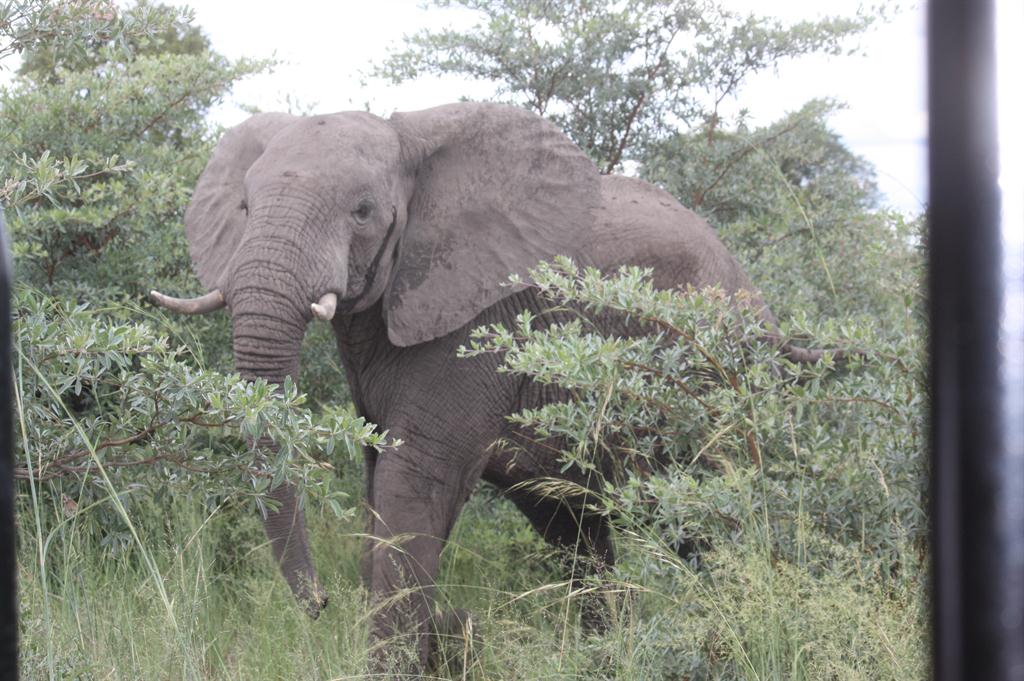New project to support communal conservancies
ELLANIE SMIT
WINDHOEK
The United Nations’ Food and Agriculture Organisation (FAO) and the French Development Agency (AFD) will support the development of community conservancies in the Kavango-Zambezi Transfrontier Conservation Area (KAZA) of Botswana and Namibia.
The two organisations have launched a new N$63 million-dollar project to improve sustainable wildlife management and food security in the world's largest terrestrial transfrontier conservation area.
KAZA covers almost 520 000 square kilometres in Angola, Botswana, Namibia, Zambia and Zimbabwe, and each year experiences large scale migrations of megafauna, in particular elephants, where 50% of the total population of African elephants can be found.
The FAO said the area is also home to poor rural communities whose livelihoods depend on agriculture, fishing and hunting and who are not always able to meet their basic needs because of erratic rainfall and frequent droughts.
According to the FAO, under the Sustainable Wildlife Management Programme, the new project will partner with the governments of Botswana and Namibia to address threats from unsustainable levels of wildlife hunting in some areas.
It will focus on Botswana's Khaudum-Ngamiland wildlife dispersal area as well as in Namibia's community conservancies of the Zambezi Region and around the Khaudum National Park.
It will also focus on habitat closure and fragmentation, which prevents animals from reaching the resources they need to survive, as well as poaching and killing of animals as a result of human-wildlife conflicts.
“The focus of the project is to benefit both the wildlife and ecosystems in the transfortier conservation area and the resilience of local communities that rely on them, at least in part, for food and income,” Mette Wilkie, the director of the forestry division at the FAO, said.
Community conservancies
The project will focus on supporting the development of a network of community conservancies and community-based organisations that help manage community-owned land to ensure the conservation and sustainable use of natural resources for the benefit of local livelihoods.
Namibia already has a network of 86 community conservancies, which collectively cover 20% of the country and are home to nearly 230 000 people, while it generates 5 300 jobs.
“This project aims to establish an effective network of community conservancies since they have proven to be a powerful means to combat rural poverty,” Gilles Kleitz, the director of the AFD’s ecological transition and natural resources department said.
“In Namibia, for instance, conservancies contribute more than US$10 million (N$149 million) in benefits such as income, employment remuneration and in-kind, for example meat to the conservancy members, in 2018.”
A total of N$8.375 billion has been contributed to Namibia’s net national income through community conservation from 1990 to the end of 2018, while in 2018, alone the contribution was N$884 million.
In comparison, N$2.5 billion has been invested into the conservancy programme since 1990, of which the majority of the funding came from donors.
This is according to the 2018 State of Community Conservation Report.
WINDHOEK
The United Nations’ Food and Agriculture Organisation (FAO) and the French Development Agency (AFD) will support the development of community conservancies in the Kavango-Zambezi Transfrontier Conservation Area (KAZA) of Botswana and Namibia.
The two organisations have launched a new N$63 million-dollar project to improve sustainable wildlife management and food security in the world's largest terrestrial transfrontier conservation area.
KAZA covers almost 520 000 square kilometres in Angola, Botswana, Namibia, Zambia and Zimbabwe, and each year experiences large scale migrations of megafauna, in particular elephants, where 50% of the total population of African elephants can be found.
The FAO said the area is also home to poor rural communities whose livelihoods depend on agriculture, fishing and hunting and who are not always able to meet their basic needs because of erratic rainfall and frequent droughts.
According to the FAO, under the Sustainable Wildlife Management Programme, the new project will partner with the governments of Botswana and Namibia to address threats from unsustainable levels of wildlife hunting in some areas.
It will focus on Botswana's Khaudum-Ngamiland wildlife dispersal area as well as in Namibia's community conservancies of the Zambezi Region and around the Khaudum National Park.
It will also focus on habitat closure and fragmentation, which prevents animals from reaching the resources they need to survive, as well as poaching and killing of animals as a result of human-wildlife conflicts.
“The focus of the project is to benefit both the wildlife and ecosystems in the transfortier conservation area and the resilience of local communities that rely on them, at least in part, for food and income,” Mette Wilkie, the director of the forestry division at the FAO, said.
Community conservancies
The project will focus on supporting the development of a network of community conservancies and community-based organisations that help manage community-owned land to ensure the conservation and sustainable use of natural resources for the benefit of local livelihoods.
Namibia already has a network of 86 community conservancies, which collectively cover 20% of the country and are home to nearly 230 000 people, while it generates 5 300 jobs.
“This project aims to establish an effective network of community conservancies since they have proven to be a powerful means to combat rural poverty,” Gilles Kleitz, the director of the AFD’s ecological transition and natural resources department said.
“In Namibia, for instance, conservancies contribute more than US$10 million (N$149 million) in benefits such as income, employment remuneration and in-kind, for example meat to the conservancy members, in 2018.”
A total of N$8.375 billion has been contributed to Namibia’s net national income through community conservation from 1990 to the end of 2018, while in 2018, alone the contribution was N$884 million.
In comparison, N$2.5 billion has been invested into the conservancy programme since 1990, of which the majority of the funding came from donors.
This is according to the 2018 State of Community Conservation Report.





Comments
Namibian Sun
No comments have been left on this article